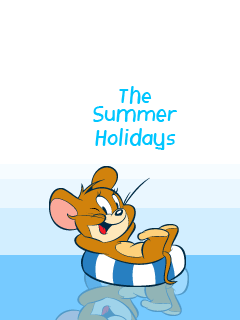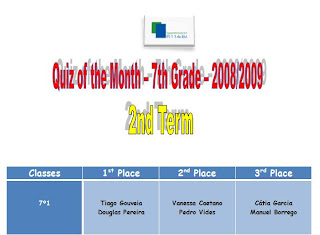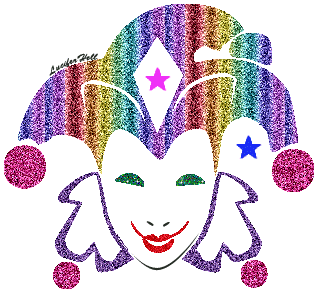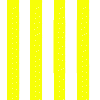School Objects
![]()
Simple Past
Exercise 1 < ----- Was or Were?
Exercise 2 < ----- Questions in the Simple Past
Exercise 3 < ----- Gap-filling Exercise
Adjectives
Exercise 1 < ----- Click here!
Exercise 2 < ----- Click here!
Simple Past (Regular Verbs)

We use the Simple Past to express the idea that an action started and finished at a specific time in the past. Sometimes, the speaker may not actually mention the specific time, but they do have one specific time in mind.
Examples:
I played football yesterday.
Last week she didn't arrive on time.
Exercise 1 < ------ Click here
Exercise 2 < ------ Click here
Exercise 3 < ----- Click here to download
Simple Past Tense To Be
Check out this SlideShare Presentation:
Question Tags

A tag question is a special construction in English. It is a statement followed by a mini-question. The whole sentence is a "tag question", and the mini-question at the end is called a "question tag".
We use tag questions at the end of statements to ask for confirmation. They mean something like: "Am I right?" or "Do you agree?" They are very common in English.
The basic structure is:
Exercise < ----- Click here
Adverbs of frequency

always, usually, regularly, normally, often, sometimes, occasionally, rarely, seldom, never are adverbs of frequency.
The position of these adverbs is:
before the main verb
after a form of to be am, are, is (was, were)
The adverbs often, usually, sometimes and occasionally can go at the beginning of a sentence.
Sometimes I go swimming.
Often we surf the internet.
Somtimes these adverbs are put at the end of the sentence.
We read books occasionally.
The adverbs rarely and seldom can go at the end of the sentence.
He eats fish very seldom.
Exercise < ---- Click here
Present Continuous

(the girl is dancing)
The Present Continuous Tense
1. We use the Present Continuous Tense to talk about activities happening now.
Examples: The kids are watching TV. I am sitting down, because I am tired.
2. We can also use the Present Continuous Tense to talk about activities happening around now, and not necessarily this very moment.
Examples: Sally is studying really hard for her exams this week. I am reading a really interesting book now.
3. The Present Continuous Tense is also used to talk about activities happening in the near future, especially for planned future events.
Examples: I am seeing my dentist on Wednesday. Are you doing anything tonight?
Use the Present Continuous with Normal Verbs to express the idea that something is happening now, at this very moment. It can also be used to show that something is not happening now.
Examples:
• You are learning English now.
• You are not swimming now.
• Are you sleeping?
• I am sitting.
• I am not standing.
• Is he sitting or standing?
• They are reading their books.
• They are not watching television.
• What are you doing?
• Why aren't you doing your homework?
Present Continuous Forms
Exercises: < ---- Click here to do the exercises


























